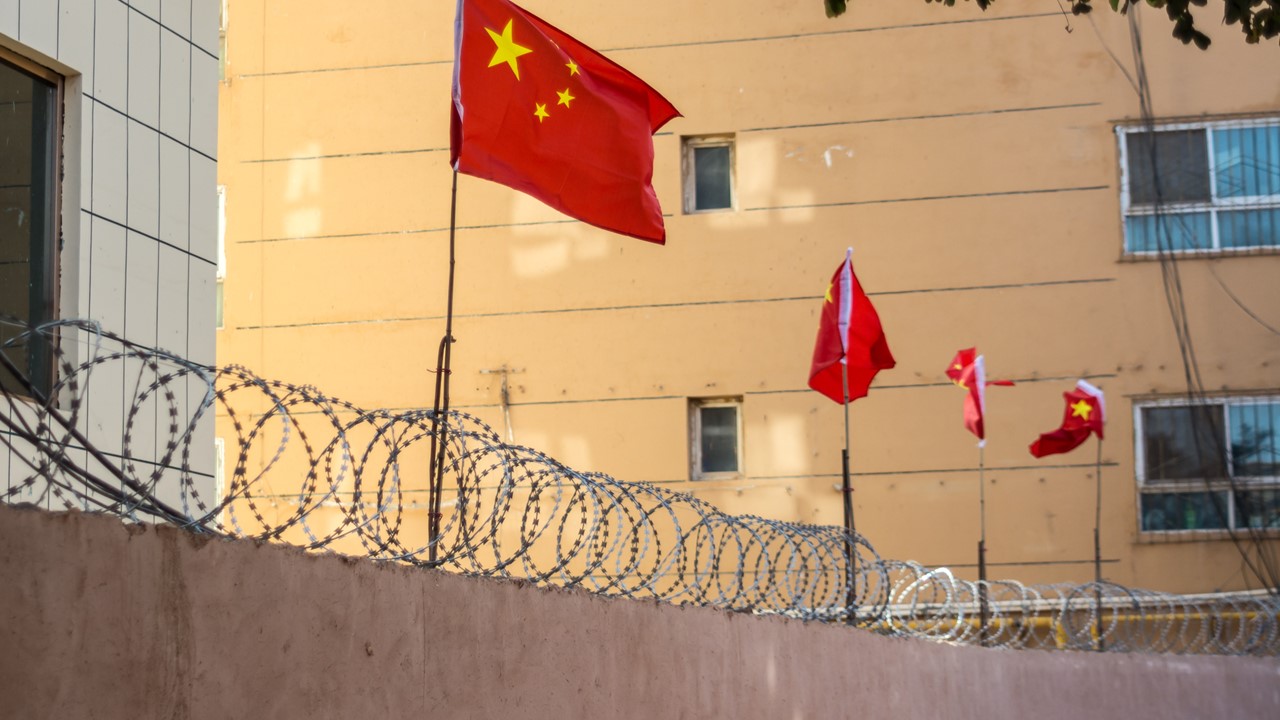
UFLPA to impact global chemical supply chains
Submitted by:
Andrew Warmington
Oliver Cushing, CEO of RightsDD, looks at the possible impact of a new US law on the chemical industry
On 21 June, the Uyghur Forced Labor Prevention Act (UFLPA) came into force. It effectively bans the import of any good mined, produced or manufactured in the Xinjiang region of China to the US. Significantly, the ban extends to goods containing any material mined, produced or manufactured in the region. The new law has far reaching consequences for chemical companies, because many goods sourced from China are likely to be made in, or contain materials from, Xinjiang.
The US government believes that Uyghurs and other ethnic minority groups are being exploited at scale in other regions of China as part of a government run ‘poverty alleviation’ programme. The import of goods made, or containing materials made, by such workers is also prohibited.
Forced labour prohibition & the UFLPA
The import into the US of goods mined, produced or manufactured by forced labour has been prohibited since 1930. US Customs & Border Protection (CBP) can detain and destroy suspect goods and fine importers. The CBP has significantly stepped up enforcement in recent years. In 2021 they detained 1,469 shipments on forced labour grounds compared to just six in 2018. RightsDD, a human rights due diligence technology and consultancy company, predicts that shipment detentions will be two to five times the 2021 figure in 2022.
The UFLPA creates a ‘rebuttable presumption’ whereby any good mined, produced or manufactured in full or part in Xinjiang will be treated as the product of forced labour. Unless the importer can demonstrate that the good was not made by forced labour, it will be detained and potentially destroyed at US ports. The importer may also be fined. Goods that do not contain Xinjiang-sourced materials, but which are processed in facilities that handle materials from Xinjiang, may also be detained by CBP under the ‘commingling principle.’
Xinjiang
Xinjiang is China’s largest region and is nearly four times the size of California. Its population is equivalent to that of Australia and its economy is about the same size as Finland’s. Approximately 12 million of Xinjiang’s 26 million people are ethnic Uyghurs, a traditionally Muslim group with a distinct language and culture. Other traditionally Muslim groups in Xinjiang number nearly three million.
The US Government asserts, based on multiple credible investigations, that the Chinese Government has “since 2017, arbitrarily detained as many as 1.8 million Uyghurs, Kazakhs, Kyrgyz, and members of other Muslim minority groups in a system of extrajudicial mass internment camps, in addition to arbitrarily detaining many in formal prisons and detention centres, and has subjected detainees to forced labour, torture, political indoctrination and other severe human rights abuses.”
Xinjiang’s chemical sector Xinjiang plays a significant role in China’s speciality chemicals sector, both as a place of manufacture and a source of ingredients. Furthermore, that role is likely to expand. Emily de la Bruyere of China-focused risk consultancy Horizon Advisory noted that “the chemical industry is a priority, and growing priority, in the Chinese government’s industrial policy in Xinjiang; the Xinjiang Production and Construction Corps sees the chemical industry as key to developing the regional economy.”
The South China Morning Post reports that the top export by value from Xinjiang to the US in Q1 2021 was a heterocyclic compound widely used in cancer drugs. The second was amino acids.1 About 20% of China’s hydrocarbon production comes from Xinjiang. Xinjiang has a large commodity chemical sector and its outputs will be used to make many of China’s speciality chemicals. Notably the region produces 5% of China’s ethylene, 8% of the country’s caustic soda and 26% of its calcium carbide. In total the region exported €1 billion of chemicals goods overseas in 2019.
Direct exports are probably the tip of the iceberg, however. Companies should be equally concerned by the risk that goods made in other parts of China contain materials sourced from Xinjiang. Xinjiang also looms large in the supply chain of auxiliary materials that chemicals companies buy. For example, the region produces 7% of China’s plastic and packaging sourced from the country has a high risk of coming from Xinjiang.
Essential steps for companies
The UFLPA is the latest in a series of new American, Australian, British and EU regulations that target modern slavery, including forced labour, in business supply chains. To comply with the new regulations, companies need to implement human rights due diligence of their supply chains.
Indeed, the benefits of implementing due diligence go well beyond compliance. Customers, employees and investors alike expect companies to take reasonable steps to ensure that their supply chains are not propped up by human rights abuses, including forced labour.
The due diligence process involves engaging with stakeholders, assessing risks, and monitoring risks. Companies should ask their suppliers whether goods come from Xinjiang or contain materials from the region. This is a key but insufficient step on its own, given the obvious potential for suppliers to obfuscate. They should therefore map and trace supply chains and employ third party data to determine the forced labour risk profile of given goods and suppliers.
Companies should also incorporate human rights requirements into supplier codes of conduct, add appropriate clauses to supplier contracts and train employees to spot indicators of forced labour. Those who fail to conduct due diligence of supply chains for modern slavery will increasingly expose themselves to legal, reputational and operational risk. They also risk the ire of consumers, employees and investors alike.
Contact:
Oliver Cushing
CEO
RightsDD
www.rightsdd.com
Reference:
1. https://www.scmp.com/economy/china-economy/article/3130567/china-trade-xinjiang-exports-us-doubled-first-quarter-even
